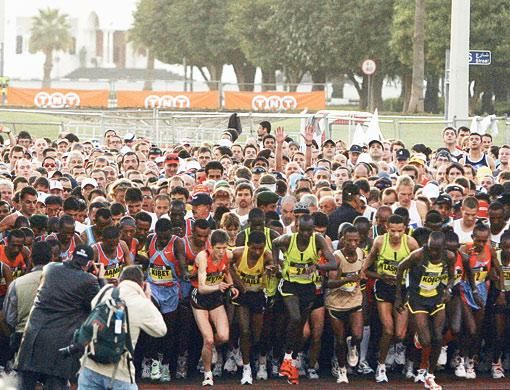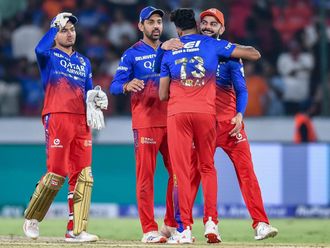Dubai: When the Dubai Marathon was staged for the first time on November 27, 1998, no one thought the event will one day be counted among the most reputed marathon events in the world.
Today, the Dubai Marathon boasts of the world's best runners.
Ahmad Al Kamali, the general coordinator of the Dubai Marathon, who has been associated with the race since its inception, said: "We had a goal from the very first time we staged the Dubai Marathon. We want to go far ahead.
"Alan Chilton, a British runner won the first marathon clocking 2:23:8. We knew that this was not the time we wanted as the best for Dubai Marathon. So we aimed for greater glory and worked hard. This is the 12th Dubai Marathon and we have come a long way.
"Under the patronage of His Highness Shaikh Mohammad Bin Rashid Al Maktoum, Vice-President and Prime Minister of the UAE and Ruler of Dubai, the event grew in stature.
"With the support from the Dubai Government, Police, Municipality, Road Transport Authority (RTA) and sponsors, we could improve the event every year and the news of Dubai Marathon spread far and wide to attract the best runners," he said.
Chilton, when he won the first Dubai Marathon, received a winner's cheque of just Dh4,000 and a trophy. Today, the Dubai Marathon is among the richest in the world with the winners in both the men's and women's categories standing to win $250,000 each.
The timings at the Dubai Marathon have improved over the years and champions like Haile Gebrselassie of Ethiopia have reached close to breaking the world record.
Dubai Holding has offered a $1 million bonus to the runner, who shatters the world record. Gebrselassie was flown in to try and break the world record last year. He failed to rewrite his own world record by just 27 seconds, and is determined to do it this time.
Gebrselassie has been training hard at Etoto, just outside Addis Ababa, for the Dubai Marathon.
From the year 2000, top runners from Kenya and Ethiopia began competing in the Dubai Marathon.
Wilson Kibet of Kenya dominated the event with a timing of 2:12:21 in 2000. In 2001, he won again with a timing of 2:13:36, and made it a hat-trick of victories in 2002, clocking 2:13:04.
Joseph Kahugu of Kenya ended Kibet's domination by winning the marathon in 2003. From then on, every year has seen a new champion.
However, the winners have so far been only from either Kenya or Ethiopia.
"More and more runners now want to compete. This year we have 20 runners from Kenya, 32 from Ethiopia and even runners from South Africa, Japan, Russia, America and Algeria. Over 50 nationalities will be participating in the marathon," said Kamali.
In the women's race, Russian women dominated for the first four years from 2000 with Ramilya Burangulova winning it in 2000 and 2001. From 2004, the women's race also began to be dominated by Ethiopian and Kenyan runners.













